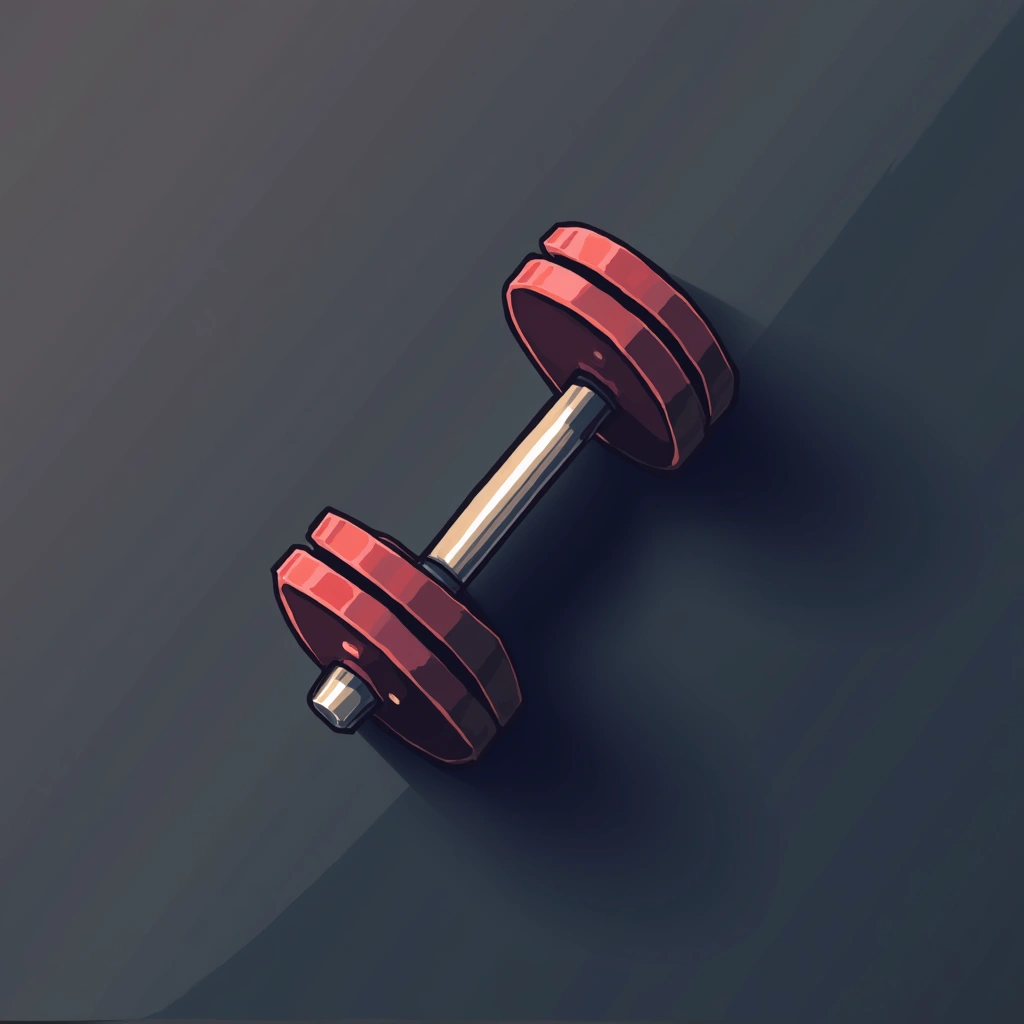Leonardo Da Vinci Habits - Master Polymath Productivity
Leonardo da Vinci's Daily Disciplines
Leonardo da Vinci, a true Renaissance polymath, wasn't just born a genius; he cultivated it. His daily habits and routines were meticulously designed to fuel his boundless curiosity and diverse pursuits. From a fragmented sleep schedule allowing for constant energy renewal to a structured diet for optimal physical and mental condition, Da Vinci’s approach to life was a masterclass in self-optimization. He emphasized both rigorous physical and mental conditioning, alongside a systematic approach to capturing and developing ideas.
His habits reveal a dedication to structured learning and keen observation, crucial for his groundbreaking work in art, science, and engineering. Da Vinci's commitment to continuous improvement and holistic well-being provides a timeless blueprint for anyone seeking to unlock their full potential.
- Key focus points of Da Vinci's habits:
- Structured Learning & Observation: Systematic study of nature and anatomy.
- Creative Output & Idea Generation: Notebooks, mind mapping, analogical reasoning.
- Physical & Mental Well-being: Diet, exercise, sleep, and mental discipline.
- Lifelong Pursuit of Knowledge: Embracing a beginner's mindset and continuous learning.
Unlock your inner genius by adopting the time-tested habits of Leonardo da Vinci and embark on a journey of continuous growth and discovery.
Filter Habits
 Leonardo Da Vinci's Habit Sets
Leonardo Da Vinci's Habit Sets
Polyphasic Sleep Schedule
Sleep in short 20-minute intervals every four hours to maximize waking productivity and mental clarity. This approach allows for frequent renewal of energy throughout the day.
Why This Matters
Leonardo da Vinci adopted this sleep pattern to allocate time across his diverse interests while maintaining alertness. The fragmented schedule enabled uninterrupted creative sessions and scientific inquiry.

Structured Vegetarian Diet
Prioritize fiber-rich vegetables, whole grains, and water while minimizing fat, sugar, and salt. Meals are consumed only when hungry, with light evening portions.
Why This Matters
Da Vinci believed nutritional discipline enhanced physical health and mental performance. His plant-based choices aligned with ethical concerns about animal welfare and physiological efficiency.
Morning Affirmation Journaling
Begin each day writing positive self-statements to cultivate confidence and resilience. Entries focus on perseverance and overcoming obstacles.
Why This Matters
Da Vinci used affirmations like 'I shall continue' to reinforce determination during long-term projects. This practice maintained his motivation despite setbacks.

Daily Physical Conditioning
Engage in regular exercise emphasizing strength, flexibility, and ambidexterity. Activities include horseback riding, swimming, and manual labor.
Why This Matters
Da Vinci viewed physical fitness as foundational to mental acuity. His anatomical studies informed exercises optimizing both body and mind.
Idea Capture Notebooks
Carry journals to immediately document observations, sketches, and hypotheses. Entries are organized by project stage for easy reference.
Why This Matters
Da Vinci's 7,000+ notebook pages systematized fleeting inspirations into actionable research. This prevented cognitive overload while enabling cross-disciplinary connections.

Hierarchical Task Prioritization
List and rank objectives daily, moving items as urgency shifts. Highest-value tasks receive morning energy peaks.
Why This Matters
Da Vinci managed polymathic pursuits by dynamically allocating attention. This prevented context-switching costs during critical creative phases.
Time-Blocked Deep Work
Segment days into dedicated focus periods with minimized distractions. Environmental controls support sustained concentration.
Why This Matters
Da Vinci's four-hour work blocks enabled immersion in complex problems. Structured schedules reduced decision fatigue about when to switch tasks.

Anatomical Dissection Practice
Conduct hands-on examinations of biological systems to understand functional mechanics. Comparisons are made across species.
Why This Matters
Da Vinci's 30+ human dissections informed both artistic realism and engineering designs. Direct observation bypassed textual inaccuracies.

Mind Mapping Connections
Visually diagram relationships between concepts using radial hierarchies. Combine words, symbols, and colors.
Why This Matters
Da Vinci's mirrored handwriting allowed nonlinear idea association. This facilitated cross-pollination between art, science, and technology.
Deliberate Creative Incubation
Pause active work on projects to allow subconscious processing. Return with fresh perspective after temporal distance.
Why This Matters
Da Vinci's 'purposeful procrastination' let ideas mature organically. The Mona Lisa's 16-year development benefited from intermittent refinement.

Perfectionist Iteration Cycles
Relentlessly revise works through progressive approximation. Accept indefinite timelines for mastery.
Why This Matters
Da Vinci's 1503 note 'I have wasted my hours' reflects high standards. Unfinished pieces like The Adoration maintained creative potential.

Sensory Acuity Training
Sharpen perception through focused attention to visual, auditory, and tactile stimuli. Record nuances in notebooks.
Why This Matters
Da Vinci's light observations informed sfumato technique. Enhanced senses detected patterns others overlooked.

Moderated Wine Consumption
Consume small wine portions during meals, avoiding empty-stomach intake. Prioritize quality over quantity.
Why This Matters
Da Vinci's Codex Atlanticus warned against alcohol's cognitive impacts. Controlled use balanced conviviality with clear-headedness.

Evening Digestive Optimization
Eat light, early dinners with thoroughly chewed simple ingredients. Avoid late-night digestion interference.
Why This Matters
Da Vinci's belief that 'heavy suppers injure health' aligned with Renaissance humoral theory. This supported next-morning mental freshness.
Thorough Mastication Practice
Chew each bite extensively before swallowing to aid digestion and nutrient absorption. Mealtime mindfulness.
Why This Matters
Da Vinci's dietary guidelines emphasized mechanical breakdown. This habit complemented his overall longevity strategy.

Ergonomic Kitchen Design
Organize cooking spaces for workflow efficiency with dedicated washing areas and service hatches.
Why This Matters
Da Vinci's kitchen schematics in Codex Atlanticus reveal systems thinking. Spatial logic minimized movement waste during meal prep.

Herbal Remedy Experimentation
Research plant-based treatments through trial and error. Document formulations for future reference.
Why This Matters
Da Vinci's nettle seed gallstone remedy shows empirical methodology. His medical interests blended curiosity with practical problem-solving.

Ethical Vegetarian Advocacy
Avoid animal products due to moral objections to cruelty. Promote plant-based nutrition's sufficiency.
Why This Matters
Da Vinci's 'Why not help other animals?' questioned anthropocentrism. His diet reflected Enlightenment values predating modern movements.
Analogical Reasoning Drills
Draw parallels between disparate domains to generate novel insights. Use metaphors in problem-solving.
Why This Matters
Da Vinci compared earth's waterways to blood vessels. This habit enabled cross-disciplinary innovation like hydraulic engineering inspired by biology.

Ambidextrous Skill Development
Train non-dominant hand for writing and drawing. Alternate hands to prevent fatigue.
Why This Matters
Da Vinci's mirror writing utilized left-handed capabilities. This expanded neural plasticity and creative expression avenues.

Nature Observation Walks
Study organic forms and natural phenomena through attentive outdoor excursions. Record findings visually.
Why This Matters
Da Vinci's botanic studies informed both landscape art and scientific theories. Direct engagement with ecosystems fueled systemic thinking.

Interconnected Systems Analysis
Examine how components interact within larger wholes. Map relationships between art, science, and culture.
Why This Matters
Da Vinci's helicopter design (Codex Atlanticus) blended mechanical and biological principles. Holistic perspective enabled revolutionary inventions.

Lifelong Learning Commitment
Dedicate daily time to acquiring new skills and knowledge domains. Embrace beginner's mindset.
Why This Matters
Da Vinci's 67-year journey included late-life anatomy studies. Continuous growth maintained cognitive vitality and creative output.

Graceful Movement Cultivation
Practice elegant posture and deliberate motions. Integrate physical poise into daily activities.
Why This Matters
Da Vinci's studies of human proportion informed his carriage. Conscious movement enhanced both artistic observation and social presence.
Empirical Experimentation Bias
Test hypotheses through controlled trials rather than relying on authority. Document methods and outcomes.
Why This Matters
Da Vinci's distrust of scholasticism drove original research. Hands-on tests validated theories about light, water, and flight mechanics.

Facial Expression Analysis
Study emotional micro-expressions through portrait subjects. Catalog muscle movements and mood correlations.
Why This Matters
Da Vinci's Last Supper characters reveal psychological depth. Systematic observation created lifelike artistic representations.

Light Behavior Observation
Document how illumination interacts with surfaces at different angles. Note reflections and shadows.
Why This Matters
Da Vinci's chiaroscuro technique required understanding light physics. These studies bridged artistic and optical scientific advancements.

Avian Flight Mechanics Study
Analyze bird wing movements and airflow dynamics. Build prototypes based on observations.
Why This Matters
Da Vinci's ornithopter designs stemmed from decade-long avian studies. Biological mimicry informed early aeronautical engineering.
Key Takeaways for Modern Living
Da Vinci's habits, though rooted in the Renaissance, offer timeless principles remarkably relevant to modern life. Integrating these key takeaways can enhance your productivity, creativity, and overall well-being in today's fast-paced world. His emphasis on mindful living and systematic thinking can be adapted to cultivate a more focused and fulfilling existence.
- Structured Focus: Time-Blocked Deep Work and Hierarchical Task Prioritization emphasize the importance of dedicated focus periods and organized task management for deep work and efficient output.
- Continuous Learning: Lifelong Learning Commitment and Idea Capture Notebooks highlight the profound value of constant learning, curiosity, and diligently documenting fleeting insights and observations.
- Mind-Body Connection: Daily Physical Conditioning, Structured Vegetarian Diet, and Evening Digestive Optimization underscore the fundamental link between physical health, mental acuity, and overall well-being.
- Creative Exploration: Analogical Reasoning Drills, Mind Mapping Connections, and Deliberate Creative Incubation foster innovative thinking, idea generation, and the power of subconscious processing in creative endeavors.
Embrace the spirit of Leonardo da Vinci and transform your daily life into a canvas for continuous learning, creativity, and impactful action.
